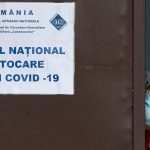More than 1.2 million people died from drug-resistant infections in 2019, according to a study.
The Global Research on Antimicrobial Resistance report, published by The Lancet, comes after repeated warnings from health experts about the rise of drug-resistant bacteria.
It blamed antimicrobial resistance for an estimated 1.27 million deaths in 2019, adding that a further 4.95 million deaths were indirectly associated.
Most of the deaths were caused by antibiotic-resistant lower respiratory infections such as pneumonia, bloodstream infections, and intra-abdominal infections.
The study analysed data from 204 countries and territories and found that the impact is most severe in Sub-Saharan Africa and South Asia.
Around one in five deaths is in children aged under five.
Before the pandemic, worried about rising levels of antimicrobial resistance, British health officials raised the spectre of an “antibiotic apocalypse” coming down the track, with concerns routine procedures such as Caesarean sections could become too risky to perform because of the risk of infection.
COVID-19: Antibiotic use decreased during first year of pandemic, research suggests
UK unveils plans to fight threat of ‘antibiotic apocalypse’
Antibiotic resistance ‘one of the most dangerous global crises facing modern world’
Chris Murray, co-author of the latest study and a professor at the University of Washington, said: “These new data reveal the true scale of antimicrobial resistance worldwide.
“Previous estimates had predicted 10 million annual deaths from antimicrobial resistance by 2050, but we now know for certain that we are already far closer to that figure than we thought.”
Very few new antibiotics
One of the main reasons for the problem is the misuse and overuse of antibiotics, which encourages microorganisms to evolve and become resistant to antibiotics.
There are also very few new antibiotics being developed.
A study for the US National Institutes of Health last year blamed the difficulty of discovering new antibiotic molecules, and regulatory barriers.
Not very profitable
It also said that the development of new antibiotics is not very profitable – infections often occur over a short period of time and, after the antibiotic is successful, it is no longer needed. This is in contrast to chronic diseases that can generate revenue through the patient’s life.
The World Health Organisation warned last year that none of the 43 antibiotics in development or recently approved are enough to combat antimicrobial resistance.






















